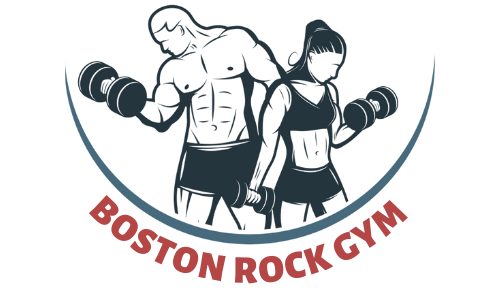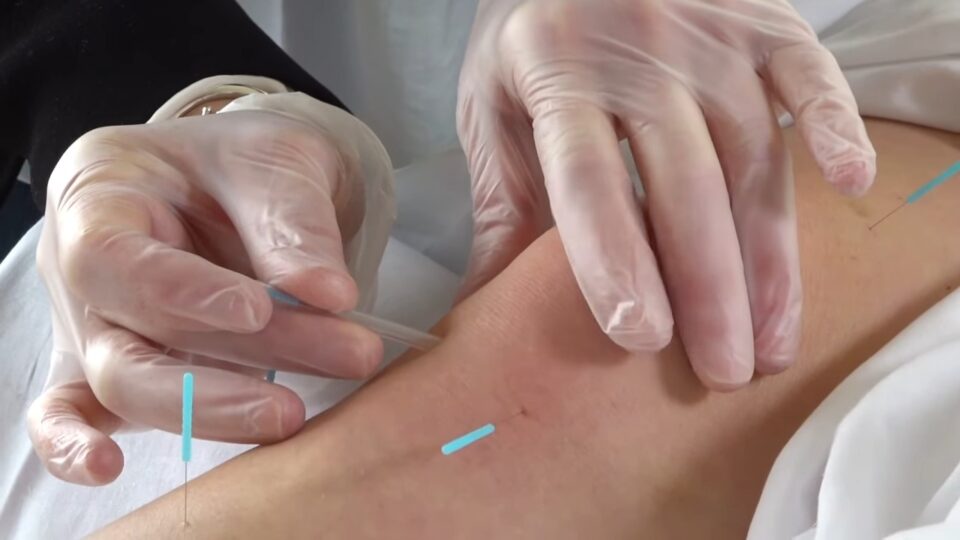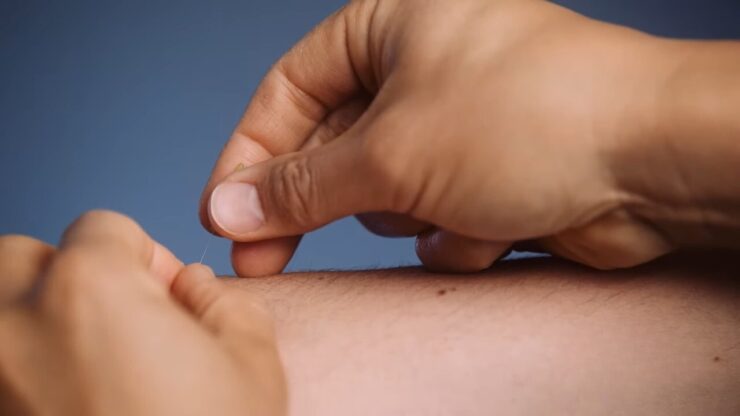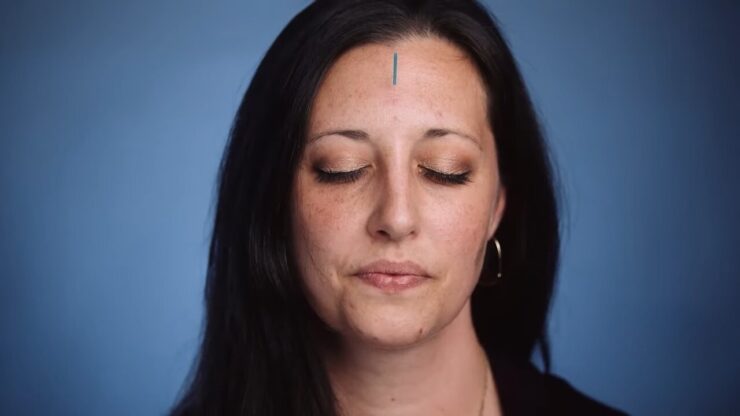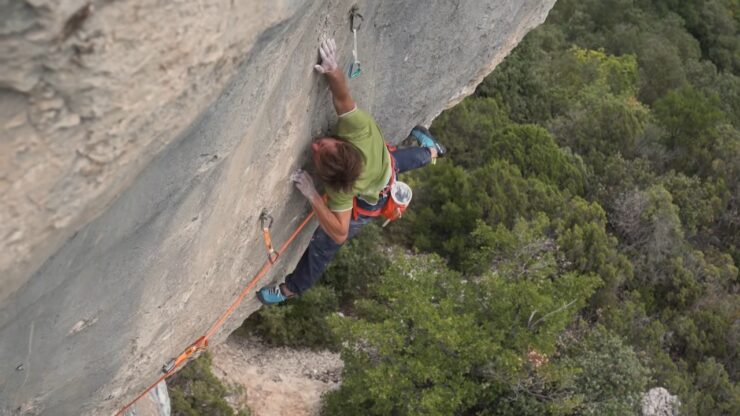In the past years, rock climbing has grown in popularity as a fun activity to keep you physically fit without having to spend hours doing intense exercises.
But if you enjoy the challenge that rock climbing can provide, it can be easy to lose track of time and realize you’re overworking your body. This can result in muscle pain and injuries that can exacerbate over time if you fail to treat them.
It may not be common knowledge, but professional athletes use acupuncture to heal and prevent these sports injuries. Consistent treatments can relieve pain and improve overall sports performance – but will it also be effective for rock climbers?
To answer your question, this article will discuss what acupuncture is and explore its numerous advantages that rock climbers can benefit from.
Contents
What Is Acupuncture?
Acupuncture is a form of Traditional Chinese Medicine that aims to restore the balance of energy flow in your body. It believes that your energy flows through several different pathways throughout your body, called meridians. Once any of its flow gets disrupted, it can cause sickness or disease.
To remedy this, acupuncture inserts thin needles at specific points on your body to release the blockages and restore your body’s energy flow. It may often be compared to dry needling, but the latter focuses on applying pressure to trigger points to treat muscle knots and tension.
Depending on your symptoms, your practitioner may use both treatments to heal your ailments.
Should Rock Climbers Do Acupuncture?
As exhilarating as rock climbing is, most climbers suffer from finger pulley injury, where according to a study, 65.7% of Singaporean climbers are affected. Aside from that, you can also develop other ailments from overworking your body, including:
- Tendonitis in the fingers, elbows, and biceps
- Labral tear on the shoulders
- Sprained ankles
If left untreated, these can exacerbate the pain and hinder your ability to rock climb. To remedy this, rock climbers can benefit from consistent acupuncture therapy since it can reduce pain, relax tense muscles, and prevent delayed onset muscle soreness. You can also do treatments as a preventative measure since they can also improve your flexibility and range of motion.
How Does Acupuncture Work?
As mentioned above, acupuncture can benefit rock climbers by reducing pain from injuries. Inserting needles at specific points of your body stimulates your central nervous system, improving your blood flow and increasing the production of pain-relieving hormones called endorphins.
People can react differently to acupuncture since some feel relaxed and slightly tired, while others feel refreshed and energized after their sessions. Regarding results, some may see immediate changes, while others take a few treatments to feel positive effects.
But no matter your experience, it’s a non-invasive treatment that helps reduce your pain from rock climbing injuries without medication.
What Other Conditions Can Acupuncture Treat?
Aside from healing injuries from rock climbing, you can also benefit from consistent treatments if you suffer from acute or chronic diseases or have mental conditions. Its relaxing properties can help relieve musculoskeletal pain and minimize symptoms of several diseases, such as:
- Fibromyalgia
- Migraine
- Back pain
- Osteoarthritis
- Tennis elbow
- Fatigue
- Menstrual cramps
- Pain after surgery
- Carpal tunnel syndrome
- Asthma
It also improves an athlete’s focus to increase performance during a game. It can also help improve your sleep so you feel refreshed and energized to face a day of rock climbing sessions.
Although helpful for reducing pain and managing your symptoms, it’s not advisable to use acupuncture as a replacement for conventional medical treatments meant for your acute or chronic disease.
When Should You Not Use Acupuncture?
If you’re suffering from an acute or chronic disease, talk to your doctor first to determine whether acupuncture benefits your condition.
It may not be the best treatment for you if you have metal allergies, a blood disorder, or are taking blood thinning medication. Also, take caution if you have a pacemaker since treatments that involve mild electrostimulation may interfere with your device.
Although acupuncture is generally safe for pregnant people, let your acupuncturist know beforehand since certain acupoints may trigger early delivery.
What Should You Expect on Your First Acupuncture Treatment?
On your first session, your acupuncturist will ask about your medical history to assess your health. It’s also not uncommon if they examine your tongue and pulse to check the state of your internal organs.
From there, they’ll create your personalized acupuncture treatment that targets your symptoms and health goals. They’ll discuss what your treatment will entail and how many sessions will take you to see changes in your health.
Depending on the severity of your symptoms, they may also suggest combining other treatments, such as cupping, dry needling, or massage, to help with your recovery.
Can You Go Rock Climbing After Acupuncture?
After a session, your acupuncturist will usually tell you to take it easy for a few days to allow your body to recover. Technically, you may rock climb if you stick to an easy course since doing strenuous exercises after acupuncture can disrupt the full effects of your treatment.
But if you’re recovering from an injury, it’s best to sit it out until it’s completely healed to prevent it from exacerbating.
If you want to stay active during this period, stick to light exercises like walking, stretching, or yoga instead. These support the effects of acupuncture since they help improve your blood circulation and flexibility and reduce inflammation.
Don’t forget to drink plenty of water during and after your workouts to keep you hydrated and flush out toxins from your body. To learn more about exercising after acupuncture, visit this site.
Ready to Start Your Acupuncture Treatment?
If you want to try acupuncture to make you a better rock climber, book your treatment at Lycoming Orthopedic & Sports Acupuncture. They have a team of licensed acupuncturists who personalize your sessions according to your symptoms and health goals.
They also offer dry needling, cupping, electrostimulation, and soft tissue mobilization treatments. For questions or inquiries, you can contact their team now and book your first session.
